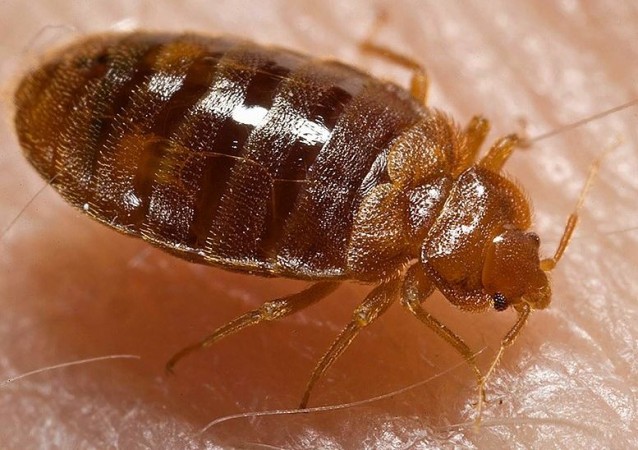
Cockroaches, termites, and bedbugs are common household pests that can be a nuisance and pose health risks. Among these, bedbugs, in particular, can be highly bothersome, as their bites can lead to intense itching and discomfort. But have you ever wondered why these pests infest your home? In this article, we will explore the reasons behind their presence and discuss effective ways to deal with them.
Why Do Bedbugs Infest Homes?
Bedbugs can infest homes for several reasons, and understanding these factors can help in preventing their presence:
Lack of Proper Cleaning: One of the primary reasons for bedbug infestations is the absence of regular and thorough cleaning in the home. Bedbugs thrive in cluttered and unclean environments, making it essential to maintain cleanliness to deter their presence.
Travel and Imported Infestations: Bedbugs are notorious hitchhikers and can easily find their way into your home through luggage, clothing, or furniture brought from infested places. Frequent travel to hotels or areas with high bedbug activity increases the risk of bringing them back home.
Second-Hand Furniture and Mattresses: Purchasing used furniture or mattresses without proper inspection can introduce bedbugs into your home. Bedbugs can hide in cracks and crevices, making it difficult to detect them until they have multiplied.
Shared Spaces: Living in multi-unit housing or apartments increases the likelihood of bedbug infestations, as they can easily move from one unit to another through wall voids, plumbing, or electrical conduits.
Where Do Bedbugs Hide?
Bedbugs are small, reddish-brown parasitic insects that feed on the blood of humans and animals, primarily while they are sleeping. They are adept at hiding in various places in your home:
Mattresses and Box Springs: Bedbugs often hide in seams, folds, and tufts of mattresses and box springs, making these prime hiding spots.
Bedding and Linens: They can also be found in pillowcases, sheets, blankets, and other bedding materials.
Furniture: Bedbugs may take refuge in cracks and crevices of furniture, including couches, chairs, and nightstands.
Walls and Baseboards: They can hide behind wallpaper, electrical outlets, and in wall voids near the bed.
Luggage and Clothing: Bedbugs can attach themselves to luggage, clothing, and personal belongings, making it easy for them to move from one location to another.
Skin Reactions to Bedbug Bites
Bedbug bites can lead to skin reactions, which vary from person to person. Common symptoms include:
Itching: Bedbug bites typically cause intense itching, which can be highly uncomfortable.
Redness: The area around the bite may become red and inflamed.
Swelling: Some individuals may experience swelling at the bite site.
Small Bumps: Bites often appear as small, raised, or flat red bumps on the skin.
While bedbug bites can be irritating, they do not usually transmit diseases. However, excessive scratching can lead to open sores, increasing the risk of infection.
Dealing with Bedbugs
Getting rid of bedbugs can be challenging, but with the right approach, it's possible to eliminate them from your home. Here are some effective methods to deal with bedbugs:
Thorough Cleaning: Start by cleaning and decluttering your home. Wash all bedding, curtains, and clothing in hot water and dry them on high heat. Vacuum the entire house, paying special attention to cracks and crevices where bedbugs may hide. After vacuuming, dispose of the vacuum bag in a sealed plastic bag outside your home.
Use of Natural Remedies: You can use natural remedies to deter bedbugs. Mixing camphor powder with neem oil and spreading it in infested areas can be effective. The strong odor of camphor and neem oil can repel bedbugs.
Rubbing Alcohol: Rubbing alcohol is a solvent that can kill bedbugs on contact. You can use it to disinfect surfaces and spray it directly on bedbugs to eliminate them.
Chemical Treatments: There are several chemical insecticides available that are specifically designed to target bedbugs. Pyrethroids, pyrethroids, neonicotinoids, and desiccants are some of the common chemical treatments. However, it's important to use these chemicals with caution and follow the manufacturer's instructions.
Professional Extermination: If the infestation is severe or persistent, it may be necessary to seek professional pest control services. Pest control experts have the knowledge and equipment to effectively eliminate bedbugs from your home.
Preventing Future Infestations
To prevent future bedbug infestations, consider the following measures:
Regular Inspection: Periodically inspect your home for signs of bedbugs, such as small reddish-brown bugs, tiny white eggs, and small black fecal spots on bedding or furniture.
Bedbug-Proof Mattress Covers: Encase your mattresses and box springs with bedbug-proof covers to prevent bedbugs from entering or escaping. These covers are available in stores and online.
Be Cautious When Traveling: When staying in hotels or motels, inspect the room for signs of bedbugs before unpacking. Keep your luggage off the floor and away from the bed. After returning home, wash and dry your travel clothes on high heat.
Avoid Second-Hand Furniture: If you buy second-hand furniture, thoroughly inspect it for signs of bedbugs before bringing it into your home.
Seal Cracks and Crevices: Seal any cracks and crevices in walls, baseboards, and furniture to reduce hiding spots for bedbugs.
Bedbugs can be a persistent problem in homes, but with proper cleaning, natural remedies, and, if necessary, professional help, you can effectively eliminate them. Regular inspection and preventive measures are crucial in avoiding future infestations. By understanding the causes of bedbug infestations and taking proactive steps to address them, you can enjoy a bedbug-free home and a good night's sleep.
Best Yoga Poses for Headache Relief: A Holistic Approach to Soothing Your Head
Nipah Virus Spreading Kerala: Ex-Health Minister K K Shailaja Offers Reassurance
How Green Tea on an Empty Stomach Boosts Brain Health and Memory